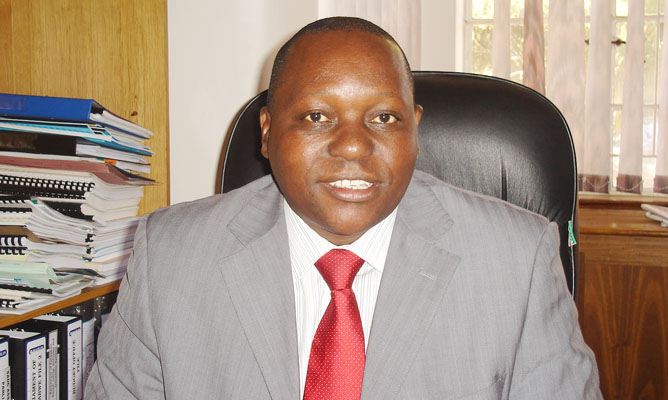
Parliament resumed sitting last week on Tuesday after a six-week break. Both the National Assembly and the Senate find themselves in a race against time to deliver on the high expectations of the electorate whose plight continues to worsen amid accelerated economic decline.
JOHN MAKAMURE

The life of the 8th Parliament is now half-way through without any significant progress recorded in the alignment of laws with the Constitution. At this rate, I will not be surprised if we reach the general election in 2018 without aligning some of the key statutes that have hindered the full enjoyment of fundamental human rights and freedoms as clearly spelt out in Chapter 4 of the Constitution.
It does not require reminding the authorities that Section 2 of the Constitution categorically states that the Constitution is the supreme law of Zimbabwe and any law, practice, custom and conduct inconsistent with it is invalid to the extent of the inconsistency. Basically, this means alignment of laws with the Constitution is not an option, but an obligation on the part of ministries and Parliament. It is a serious violation of the Constitution to continue having invalid laws in our statute books.
We should not wait for the Constitutional Court to make a ruling and then begin aligning the laws with the Constitution such as what happened recently with the Marriages Act and the Labour Act. I strongly believe that the majority of provisions in need of repeal or amendment are straightforward. For example, it does not require someone from some other planet to advise that all those statutory provisions that limit freedom of assembly and association, freedom to demonstrate and petition, freedom of expression and the media and access to information, must go. They are in contravention of sections 58, 59, 61 and 62 of the Constitution, respectively.
Fundamental human rights and freedoms are inalienable rights that guarantee civil liberties such that all citizens can lead their lives in peace and harmony. They are enjoyed by all human beings and must promote human development. Given this definition and the situation on the ground, it is reasonable to conclude that as a country we are still very far from promoting and protecting the bill of rights as enshrined in the Constitution.
Yes, the Constitution provides that these rights and freedoms cannot be enjoyed in absolute terms. However, the same Constitution goes on to say that they can only be limited in terms of a general application and to the extent that the limitation is far, reasonable, necessary and justifiable in a democratic society based on openness, justice, human dignity, equality and freedom. It is fair to say that several of the laws limiting these rights and freedoms do not pass this democratic test.
It is the duty of the law-makers to fully familiarise themselves with the bill of rights in order to pass legislation that fully protects and promotes these fundamental rights and freedoms. The most important benchmark for a good law is that it must be constitutional. We should, therefore, not inundate the Constitutional Court with constitutional applications just because Parliament is reneging on its core business of passing good law. It is already happening and is set to worsen.
- Chamisa under fire over US$120K donation
- Mavhunga puts DeMbare into Chibuku quarterfinals
- Pension funds bet on Cabora Bassa oilfields
- Councils defy govt fire tender directive
Keep Reading
I do not buy the argument that one of the main reasons delaying the alignment process is limited capacity within ministries and departments to draft legislation or issue drafting instructions to the Attorney-General’s Office’s drafting division. Zimbabwe is rich in expertise that government can always call upon to assist at no cost to the fiscus. What is needed is simply political will to do so. A clear consultative mechanism on the alignment process must be put in place in order for the government and portfolio committees of Parliament to tap into the abundant expertise that resides in the non-state sector. Unfounded suspicion of a hidden agenda from non-state actors must be thrown out of the window if this country is to move with speed in the alignment process and the implementation of the Constitution in general.
The portfolio committees of Parliament must be pro-active by submitting draft legislation or recommendations for amendment to their line ministries. They should not only wait for draft legislation to be tabled in Parliament and start reacting to it. Experience has shown that it is highly unlikely that legislation will be amended in a substantive manner once tabled in Parliament.
These portfolio committees must consult interested parties when making recommendations to line ministries on areas that require amendment or repeal. This is what section 141 of the Constitution entails when it says “Parliament must facilitate public involvement in its legislative and other processes and in the processes of its committees”.
Let us, therefore, see the remaining part of the life of this Parliament accelerating law making in a manner that protects and promotes the fundamental rights and freedoms of the people. Citizens should not entertain continued bickering on partisan lines on issues to do with the Constitution. The Constitution must be respected by all. Once again, I wish to remind members of parliament that their core mandate is to protect the Constitution and promote democratic governance (Section 119).
John Makamure is the Executive Director of the Southern African Parliamentary Support Trust. Feedback: [email protected]











